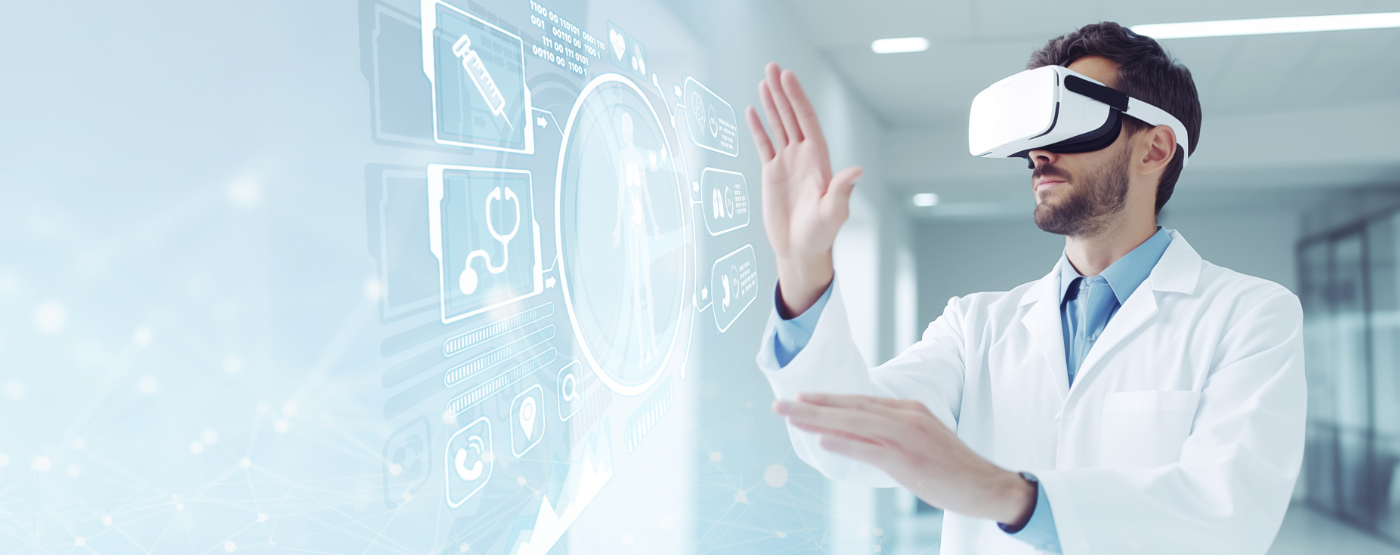
BLOG
Generative AI, or GenAI, has undoubtedly caught the public's attention. For life sciences businesses, data governance is become increasingly important for using GenAI to create more operational efficiency and a competitive advantage.
Today’s life sciences industry is generating massive amounts of data. The formats of these data sources are highly heterogeneous, and often incomprehensible to human users without software intervention. In order to make the best use of all these disparate data sources, companies are moving fast to employ generative AI (GenAI) to utilize existing data to facilitate their operational and innovation processes. However, it is crucial that the correct infrastructure and controls are put in place to ensure the integrity of the data being used for GenAI.
This blog considers the importance of effective data governance in order to properly leverage GenAI while still maintaining regulatory compliance, data integrity, and security. Used appropriately and effectively, GenAI can provide major competitive advantages to life sciences organizations, such as enhancing drug safety, enhanced prediction of new candidates, and a streamlined development process.
In the rush to innovate and adopt the latest technologies, an effective data governance policy can sometimes lag behind. Historically, data governance has focused on data protection and security. However, the way that different types of data are stored and accessed is becoming more and more crucial for generating new insights.
Here's how Bhavish Madurai, AI and Data Managing Director, Life Sciences at Deloitte, worded it in our recent online panel "Perspectives on AI, LLMs, and semantic technologies in the life sciences industry" (February 2024): “In the life sciences industry, precision and accuracy are paramount. GenAI, in particular, relies on high quality well-governed data to produce meaningful insights and outcomes.”
Data governance is a foundational pillar for the successful adoption of GenAI technology through establishing frameworks, policies, and standards. Implementing strong data governance helps an organization maintain data quality and integrity, which is critical when training GenAI models. On top of this, data governance helps companies manage their data and avoid data siloing so that people, process, and technology are seamlessly integrated. Without proper data governance strategies in place, data quality and integrity suffer, in turn impacting the quality of outputs for GenAI. Garbage in = garbage out.
In all, effective data governance helps to:
GenAI has created an inflection point with data governance that never existed previously. Systems now need to shift from a sole risk management perspective, centered around protecting the company and the privacy of users, to also creating effective methods to manage the value that can be obtained from data.
When establishing effective data governance that supports GenAI initiatives, there are a few main areas that should be considered:

Jeremy Forman, Executive Director Data Strategy, Science and Platforms at Pfizer stated during our recent dedicated online panel:
Taking a step back, a company’s journey towards digital transformation should not lose sight of data and data management transformation. Ensuring data is properly managed and governed is a foundational investment in any digital transformation strategy. As such, a comprehensive and customizable tool that assists with data management while embedding data governance frameworks can provide many benefits that can help to prepare for the adoption of innovative technologies in the future. Depending on the provider, a knowledge graph platform can be such a tool, propelling organizations further with their data governance and GenAI initiatives.
 "Once you have good a good repository, how do you extract the knowledge from that? That's where a knowledge graph comes in. A knowledge graph can pick up relationships between semantic connections, entities, and concepts, and then use that for data harmonization. This allows stakeholders to explain the AI model and answer the question 'how did I come to a particular decision?'"
"Once you have good a good repository, how do you extract the knowledge from that? That's where a knowledge graph comes in. A knowledge graph can pick up relationships between semantic connections, entities, and concepts, and then use that for data harmonization. This allows stakeholders to explain the AI model and answer the question 'how did I come to a particular decision?'" Bhavish MaduraiAI and Data Managing Director, Life Sciences at Deloitte
Bringing together the diverse data sources generated by life sciences research and drug development is essential for GenAI to generate effective outputs. The existence of multiple types of software with disparate data sources and formats contributes to data siloing. This increases the “integration tax” for companies wishing to use such data, costing both time and money.
Knowledge graphs provide a structured way to define data models, metadata, and access controls in a way that facilitates data integration, discovery, and analysis which in turn can support data governance frameworks and policies. On top of this, knowledge graphs can significantly enhance GenAI models by providing a structured and interconnected framework of data, which aids in the understanding of complex biological, chemical, and medical relationships.
In this way, knowledge graphs essentially bring humans and machines together in a specific context that allows for better intelligence. In addition, knowledge graphs ensure data is standardized and harmonized, supporting data governance strategies and providing a structured data foundation for GenAI to operate from.
Recently industry experts Jeremy Forman, Executive Director Data Strategy, Science and Platforms at Pfizer; Bhavish Madurai, AI and Data Managing Director, Life Sciences at Deloitte; and Valerie Morel, CEO of ONTOFORCE sat down for a panel discussion focused on AI, LLMs, and semantic technology in the life sciences industry.
They offer their perspectives on the effective use of GenAI in the industry, provide tangible suggestions to create an effective data governance policy to support GenAI initiatives, and more. Watch the recording to hear directly from these industry experts >>>
© 2025 ONTOFORCE All right reserved